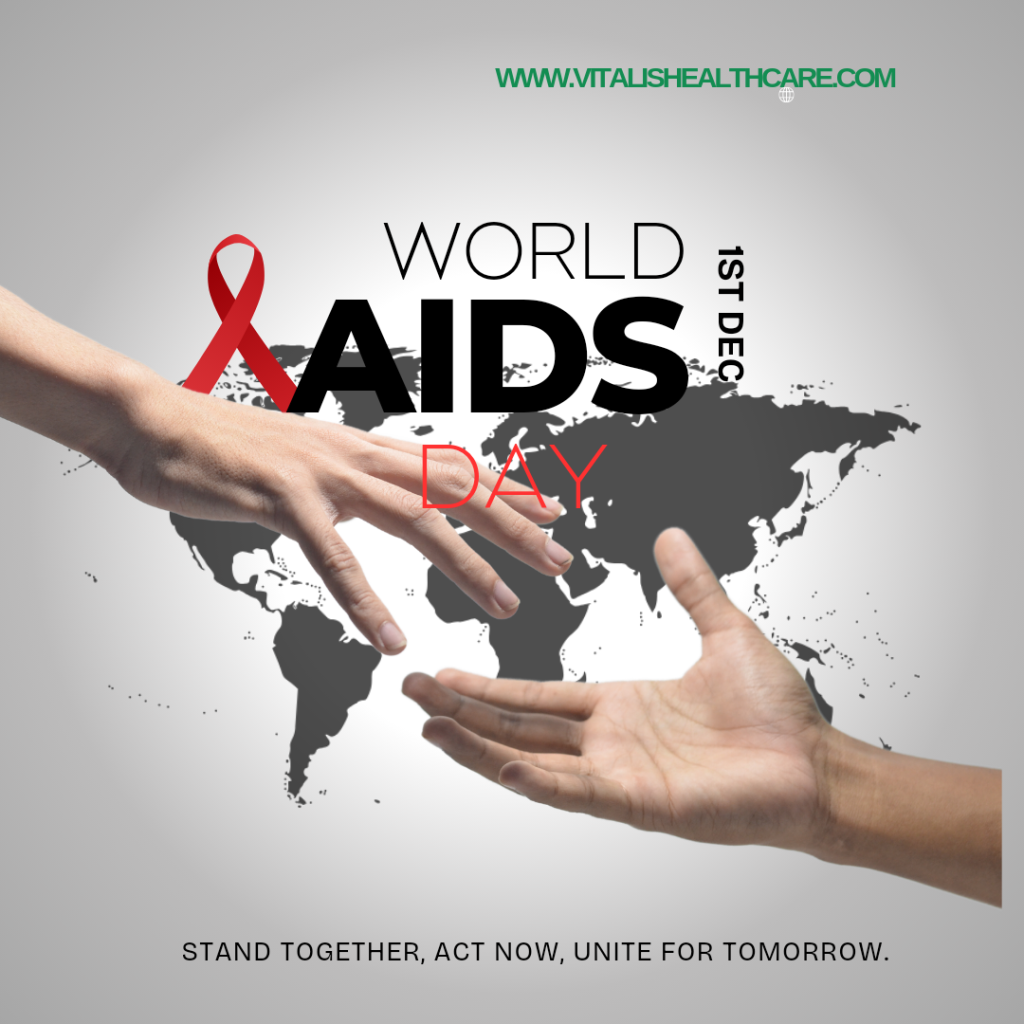World AIDS Day is observed every year on December 1st to raise awareness about HIV/AIDS, show support for people living with the virus, and remember those we have lost. This day serves as a reminder of the progress made in the fight against HIV/AIDS, while also highlighting the ongoing need for inclusivity in treatment and care for those affected.
In recent years, there has been significant progress in the treatment of HIV/AIDS. Thanks to medical advancements, people living with HIV can now lead healthy, fulfilling lives. However, challenges remain, especially when it comes to providing equal access to treatment for all individuals. It is important that health care systems continue to focus on inclusivity and accessibility in HIV/AIDS treatment.
The Centers for Disease Control and Prevention (CDC) reports that early diagnosis and continuous treatment are key to improving health outcomes for people living with HIV. When treatment is started early and followed consistently, people with HIV can live longer, healthier lives and reduce the risk of transmitting the virus to others.
As of 2023, around 79% of people living with HIV globally are aware of their status, and about 71% of those with known HIV are on treatment. However, treatment access still remains a challenge in certain regions.
A significant number of people do not know they are living with HIV, which is why regular testing and awareness campaigns are critical. The WHO estimates that approximately one in seven People living with HIV are unaware of their infection.
The Importance of Inclusivity in HIV/AIDS Treatment
Inclusivity means providing health care services that meet the needs of all individuals, regardless of their background, gender, race, age, or socioeconomic status. For many people living with HIV, receiving consistent and supportive care is essential to their well-being. Unfortunately, many face barriers such as:
- Stigma: People living with HIV often experience discrimination and judgment, which can discourage them from seeking treatment.
- Limited access to healthcare: In some areas, especially low-income communities, people may not have access to the necessary HIV treatment or support services.
- Cultural and social barriers: Social and cultural factors can influence how individuals approach their health care needs, making it harder for them to access treatment.
According to the World Health Organization (WHO), approximately 38 million people globally are living with HIV, and nearly 70% of those individuals are accessing antiretroviral therapy (ART), a treatment that helps manage the virus. However, there are still millions who do not have access to life-saving medications, especially in underserved regions.
How home health care can make a difference in promoting inclusivity for people with HIV
- Personalized Care: Home health care providers can tailor treatment plans to meet the unique needs of each patient. This includes regular monitoring of vital signs, assistance with medication adherence, and emotional support.
- Privacy and Dignity: For individuals living with HIV, privacy and confidentiality are crucial. Home care allows for a more private setting, where patients can feel more comfortable discussing their health challenges without fear of judgment or stigma.
- Education and Support: Home health care workers can educate patients about the importance of taking their medications regularly, understanding the side effects of treatment, and how to manage their health at home. They can also connect patients with support groups or counseling services to help reduce the emotional burden of living with HIV.
- Prevention of Complications: Home health care can help prevent complications related to HIV by providing regular monitoring for signs of opportunistic infections or other conditions that may arise due to a weakened immune system.
As we observe World AIDS Day, we must remember that everyone deserves access to the care and treatment they need, regardless of their circumstances. By promoting inclusivity in HIV/AIDS treatment, we can help ensure that no one is left behind in the fight against HIV. Health care services, especially home health care, can make a significant impact on improving the quality of life for individuals living with HIV by offering personalized, compassionate, and accessible care.
Let’s continue to stand together to fight stigma, support those affected by HIV, and work toward a future where everyone has access to the treatment and support they need to thrive.
CONTACT US
At Vitalis Healthcare, we provide compassionate home healthcare services to individuals living with or recovering from chronic illnesses or conditions. Our team of registered nurses and experienced caregivers are constantly and efficiently trained to provide the best quality care to our patients.
If you or your loved one is in need of professional home care services, contact us today!
Phone Number: 240.716.6874
Email: info@vitalishealthcare.com
Location: 8757 Georgia Avenue Suite 440 Silver Spring, MD 20910


